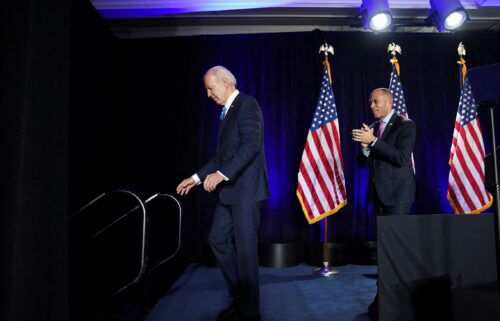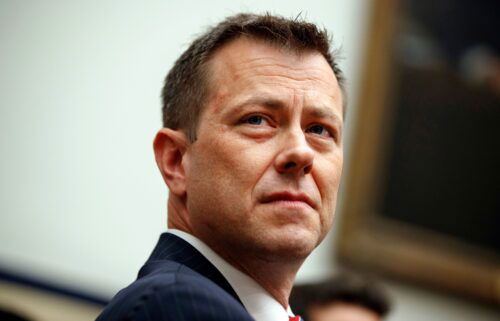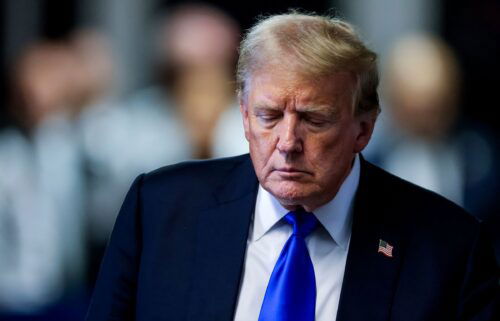Five key lessons from the impeachment trial’s question session

The Senate is halfway through its questions to the President’s legal team and the House impeachment managers — and one day closer to the key vote on witnesses. Here are the takeaways after Wednesday’s session of President Donald Trump’s impeachment trial:
What are the key senators thinking?
For days, we’ve heard little from the key senators who are still on the fence with whether to call witnesses and whether to vote to acquit or convict.
That changed on Wednesday from the very first question, offered by three of the four most-sought-after senators on the Republican side during the trial: Susan Collins of Maine, Lisa Murkowski of Alaska and Mitt Romney of Utah. The senators asked about how they should consider the possibility Trump had multiple motivations in pushing for investigations and withholding US security aid to Ukraine.
The questions continued as the day wore on. Collins and Murkowski asked a joint question about whether the President had raised corruption issues related to Joe Biden before the former vice president declared he was running for president. Romney asked the President’s counsel to say what date the US aid to Ukraine was held up and whether the President gave a reason at that time.
Key Democrats got in the act, too: Sen. Joe Manchin, a West Virginia Democrat who has praised the President’s defense team, asked why Trump’s lawyer Alan Dershowitz had changed his views on abuse of power being an impeachable offense since 1998 and the Bill Clinton impeachment.
The questions on their own don’t signal how any senator may vote on Friday on witnesses or the final vote to convict or acquit the President. But when senators are staying quiet while reporters pester them in the hallways, it’s the best window into their thinking before they cast those votes.
Alexander the Silent
While Collins and Murkowski asked multiple questions Wednesday, another key Republican senator — perhaps the most important — stayed silent: Sen. Lamar Alexander of Tennessee, a retiring senator who is close to senators on both sides, as well as Senate Majority Leader Mitch McConnell.
Alexander did not pose a question to either side on Wednesday. He also did not speak during Wednesday’s closed-door Republican conference meeting, to keep from tipping his hand one way or the other, according to sources who attended the meeting. Collins and Romney are expected to vote for witnesses — and Murkowski has said she’s “curious” to hear from Bolton. But Alexander has been careful to avoid showing a preference to either side in his public statements.
On Monday, Alexander noted to reporters that he helped fight for the provision in the Senate trial rules requiring the vote on whether to have witnesses, which is expected Friday. “I’ll decide then at that time,” he said.
If he does decide to ask a question on Thursday, you can bet both sides will be paying close attention.
Dems seize on Dershowitz
Much of Wednesday’s Q&A was the equivalent of putting the ball on the tee: Democrats asked the managers friendly questions to make their case, and Republicans gave the President’s team queries to help bolster their defense. Even when the questions crossed the aisle, the format — where senators could not follow up — kept the session from too closely resembling an actual grilling of the President’s team and the House managers.
But that didn’t mean everything was delivered to script. Sen. Ted Cruz of Texas asked the President’s lawyers whether, “as a matter of law,” it matters if there was a quid pro quo.
Dershowitz, whose performance Monday was lauded by Senate Republicans, argued the President couldn’t be impeached for a quid pro quo if he believed his reelection was in the national interest.
“Every public official that I know believes that his election is in the public interest,” Dershowitz said, “and mostly you’re right. Your election is in the public interest.”
“And if a president did something that he believes will help him get elected, in the public interest,” Dershowitz continued, “that cannot be the kind of quid pro quo that results in impeachment.”
Democrats seized on the argument, which reinforced the impeachment managers’ argument that the President’s team failed to refute evidence of the quid pro quo at the heart of the House’s impeachment. “When Dershowitz made his absurd argument, obviously, I got up and asked for the counter argument. And I think … the student took the professor to the cleaners,” said Senate Minority Leader Chuck Schumer.
Later in the day, the President’s counsel Patrick Philbin responded to a different question by effectively rejecting Dershowitz’s premise. “The straightforward answer is, yes, the evidence does show that it would be in the interest of the United States,” Philbin said. “In fact, the evidence on that point is abundant.”
Potential GOP crossovers are dwindling
Democrats need four Republican votes to force subpoenas for documents and witnesses. They’re quickly running out of options.
Sen. Cory Gardner, a Colorado Republican up for reelection in 2020, said Wednesday he was opposed to witnesses. Sen. Patrick Toomey of Pennsylvania said he was “very skeptical” that any witness would be able to change his mind on the final outcome of the trial.
And Sen. Rob Portman of Ohio asked the President’s legal team to discuss the implications for the Senate if the chamber were to call witnesses, potentially a signal of how he views the question of witnesses.
Democrats can succeed on the vote for witnesses and documents with just four senators: Collins, Murkowski, Romney and Alexander. But the conventional wisdom in the Senate is more Republicans would join Alexander — keeping him from being the deciding vote alone. The options for dance partners are running thin.
Whistleblower fight simmering
Sen. Rand Paul could be seen on the Senate floor during the first break in the trial visibly frustrated. He was overheard, while talking to a staffer, saying: “I don’t want to have to stand up to try and fight for recognition.”
Here’s what you couldn’t see: Paul planned to submit a question to Chief Justice John Roberts related to the origins of the Ukraine investigation, according to two sources. The question specifically named the alleged whistleblower — a name Roberts would have to read himself.
Roberts, sources said, made clear that was not a position he wanted to be in, and Paul was told by Senate GOP leadership that his question would not be accepted to be submitted.
Paul has made clear to leadership he is not backing down on the matter, the sources said, as GOP leaders attempted to find a workable resolution. In short, it’s an unprecedented situation.
“it’s still an ongoing process,” Paul told reporters Wednesday night. “It may happen tomorrow.”
In other words, this isn’t going away and it’s very likely Paul presses his case forward again. How that will be resolved remains and unanswered question, sources involved told CNN.



